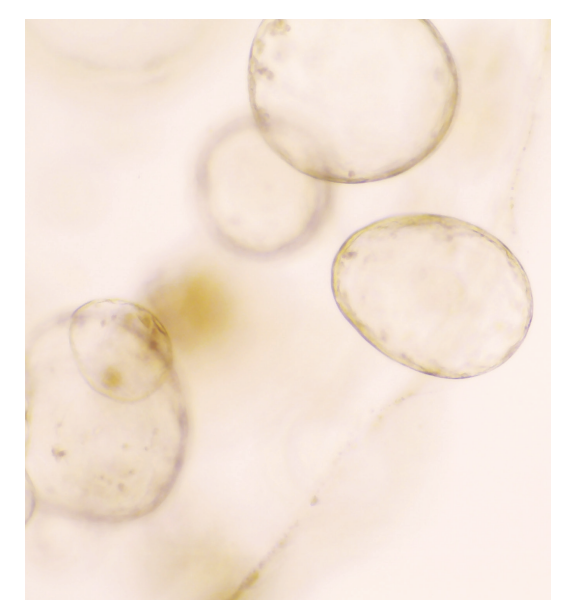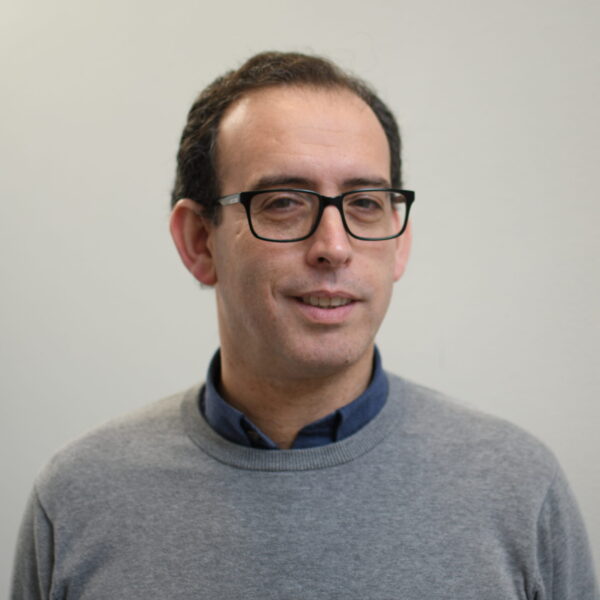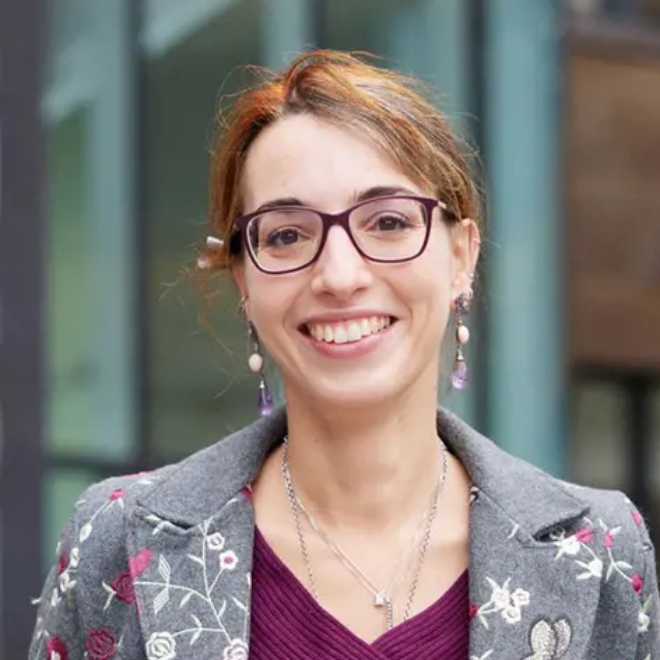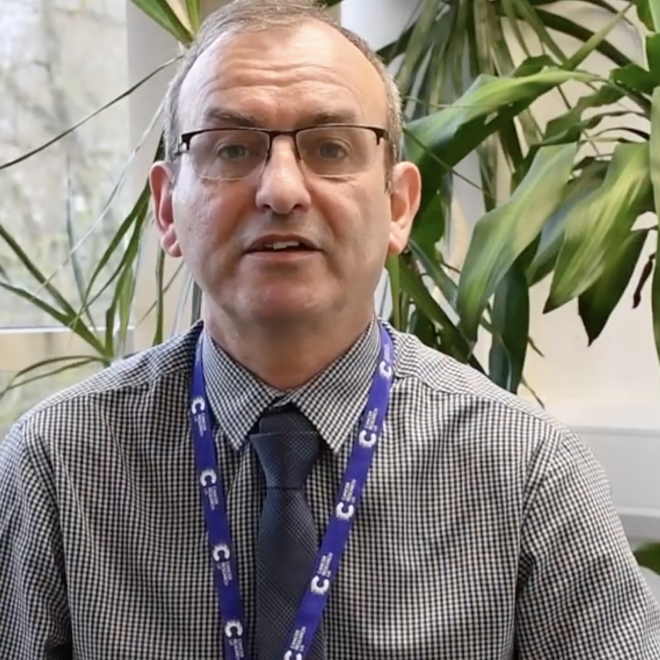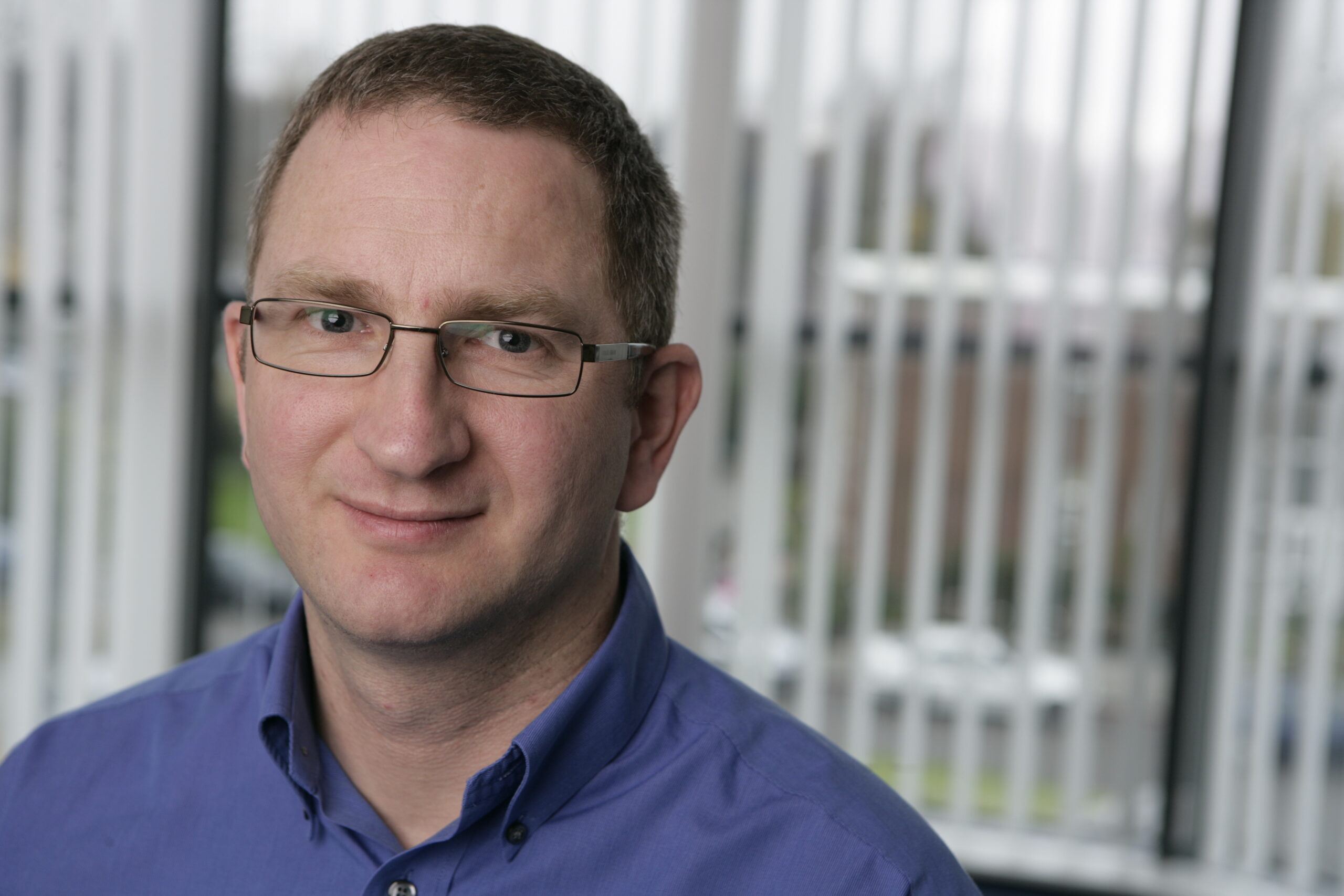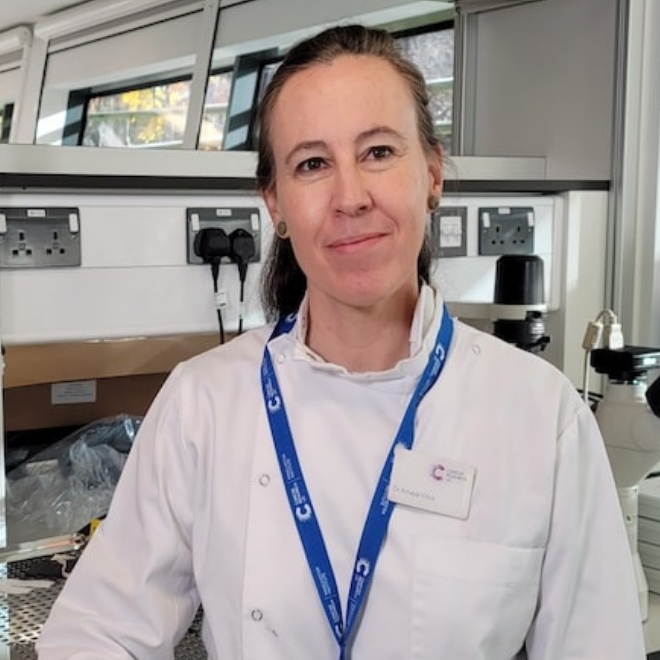Carlos Lopez-Garcia
Translational Lung Cancer Biology Group Leader
Carlos Lopez-Garcia is an Institute Fellow at the CRUK Manchester Institute, leading the Translational Lung Cancer Biology group. Funded by the NC3Rs, he focuses on developing new human models of lung squamous cell carcinoma.
About Dr Carlos Lopez-Garcia
Carlos Lopez-Garcia completed his PhD at the University of Murcia (Spain) in 2007, where he investigated the role of polyamine metabolism in prenatal development. Later that year, he joined the laboratory of Doug Winton at the CRUK Cambridge institute with a postdoctoral fellowship awarded by the regional government of Murcia (Spain) to investigate stem cell dynamics in the intestinal epithelium. In 2011, Carlos joined the laboratory of Professor Charles Swanton at the London Research Institute (later The Francis Crick Institute) where he investigated new drivers of chromosomal instability in colorectal cancer and identified BCL9L as novel driver of aneuploidy tolerance.
In 2019, Carlos joined the CRUK Manchester Institute Cancer Biomarker Centre (now the CRUK National Biomarker Centre), led by Professor Caroline, as senior research associate.
He became an Institute Fellow in 2021 with a project grant funded by the NC3Rs to develop new human models of lung squamous cell carcinoma. He leads the Translational Lung Cancer Biology group.
Qualifications
- PhD in Biochemistry | 2007 | University of Murcia (Spain)
Interests
- Lung squamous cell carcinoma
- Epithelial biology
- In-vitro cancer models
Research Projects
Publications
- A human model to deconvolve genotype-phenotype causations in lung squamous cell carcinoma
- BCL9L Dysfunction Impairs Caspase-2 Expression Permitting Aneuploidy Tolerance in Colorectal Cancer
- A novel human model to deconvolve cell-intrinsic phenotypes of genetically dysregulated pathways in lung squamous cell carcinoma
- Interrogating the precancerous evolution of pathway dysfunction in lung squamous cell carcinoma using XTABLE
Why I work at CRUK MI
“The CRUK MI is a very supportive research and multidisciplinary environment where new scientific ideas are encouraged, received with an open mind and promoted.”
Visit Research Group
Lung Cancer is a cancer type characterised by multiple histological subtypes (such as small cell and non-small cell lung cancer), which can also be subdivided into molecular subtypes with different prognosis, driver genes and dysregulated pathways. This heterogeneity is especially prominent in lung squamous cell carcinoma (LUSC), the second most frequent type of non-small lung cancer after lung adenocarcinoma, and one of the most aggressive forms of lung cancer. Multiple driver genes and pathways have been involved in LUSC progression, including inactivation of TP53 and CDKN2A tumour suppressors and somatic alterations in components of multiple oncogenic pathways. These alterations, which arise in a defined order during LUSC evolution, occur in subsets of patients with no clear correlation with molecular subtypes or trends towards co-occurrence or mutual exclusivity. The poor understanding of this inter-patient heterogeneity hinders the development of therapeutic approaches to treat LUSC, which is currently without targeted therapies. Additionally, this lack of therapies to treat LUSC patients emphasises the importance of early detection and the identification of methods to detect preinvasive LUSC stages to prevent deaths by LUSC.
In our laboratory, we intend to disentangle the biological meaning of this heterogeneity, using a multiangle approach to explore the individual and cooperative role of major LUSC drivers in the transformation of the homeostatic bronchial epithelium into preinvasive stages and ultimately invasive. In addition, we are investigating the therapeutic potential of targeting genes located in focal chromosomal amplifications and deletions that have been frequently observed in subsets of LUSC patients. Understanding the biological meaning of this LUSC evolution and inter-patient heterogeneity is necessary to design new personalised therapeutic strategies and to gain a better knowledge about the mechanisms that drive LUSC progression.
Get in touch
https://doi.org/10.1016/j.ccell.2025.04.001
Stromal lipid species dictate melanoma metastasis and tropism
24 April 2025
Institute Authors (5)
Amaya Viros, Duncan Smith, Garry Ashton, Alex Baker, Tim Somervaille
Labs & Facilities
Biological Mass Spectrometry, Histology, Visualisation, Irradiation and Analysis
Research Group
Skin Cancer & Ageing
24 April 2025
https://doi.org/10.1038/s41467-025-58343-y
A human model to deconvolve genotype-phenotype causations in lung squamous cell carcinoma
4 April 2025
Institute Authors (4)
Carlos Lopez-Garcia, Robert Sellers, Sudhakar Sahoo, Caroline Dive
Labs & Facilities
Computational Biology Support
Research Group
Translational Lung Cancer Biology
4 April 2025
https://doi.org/10.1186/s12943-024-02157-x
The PI3K-AKT-mTOR axis persists as a therapeutic dependency in KRASG12D-driven non-small cell lung cancer
12 November 2024
Institute Authors (1)
Amaya Viros
Labs & Facilities
Genome Editing and Mouse Models
Research Group
Skin Cancer & Ageing
12 November 2024
https://doi.org/10.1186/s13045-024-01610-0
The small inhibitor WM-1119 effectively targets KAT6A-rearranged AML, but not KMT2A-rearranged AML, despite shared KAT6 genetic dependency
8 October 2024
Institute Authors (6)
Georges Lacaud, Mathew Sheridan, Michael Lie-a-ling, Liam Clayfield, Jessica Whittle, Jingru Xu
Research Group
Stem Cell Biology
8 October 2024
/wp-content/uploads/2024/11/Annual-Report-2023.pdf
2023 Annual Report
13 September 2024
13 September 2024
https://doi.org/10.1126/science.adh7954
Vitamin D regulates microbiome-dependent cancer immunity
25 April 2024
Institute Authors (3)
Evangelos Giampazolias, Maria Koufaki, Santiago Zelenay
Research Group
Cancer Immunosurveillance
25 April 2024
Our vision for world leading cancer research in the heart of Manchester
We are a leading cancer research institute within The University of Manchester, spanning the whole spectrum of cancer research – from investigating the molecular and cellular basis of cancer, to translational research and the development of therapeutics.
Our collaborations
Bringing together internationally renowned scientists and clinicians
Scientific Advisory Board
Supported by an international Scientific Advisory Board
Careers that have a lasting impact on cancer research and patient care
We are always on the lookout for talented and motivated people to join us. Whether your background is in biological or chemical sciences, mathematics or finance, computer science or logistics, use the links below to see roles across the Institute in our core facilities, operations teams, research groups, and studentships within our exceptional graduate programme.



